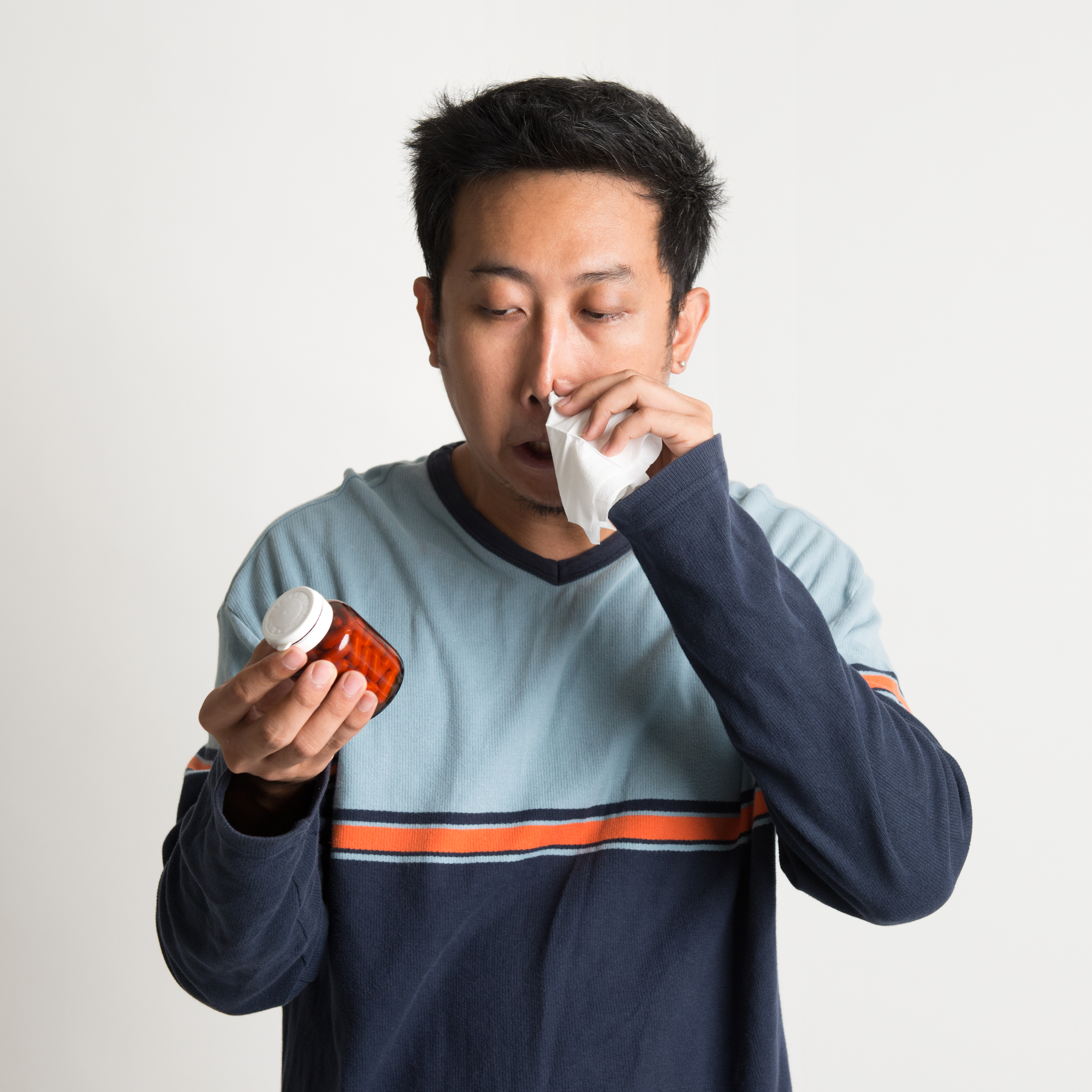The body may recognize the drug as foreign substance and activate immune responses which leads to allergic reactions.

The body may recognize the drug as foreign substance and activate immune responses which leads to allergic reactions.
Signs and symptoms may range from mild to life threatening such as upset stomach, hives, skin rash, itchy skin or eyes, congestion, and swelling in the mouth and throat.
Anaphylaxis is the severe case which may include difficulty breathing, blueness of the skin, dizziness, fainting, anxiety, confusion, rapid pulse, nausea, diarrhea, and abdominal problems.
What Are the Most Common Drug Allergies?
Penicillin, sulfa drugs, barbiturates, anticonvulsants, and insulin have high prevalence of allergic reactions.
DIAGNOSIS
History of allergies and taking of drugs and ordering for allergic tests will help in the diagnosis.
RECOMMENDED MEDICATIONS
Relief from the prominent symptoms such as rash, hives, and itching can often be controlled with antihistamines, and occasionally corticosteroids.
Bronchodilators for coughing and lung congestion, difficulty of breathing, etc.
Desensitization to penicillin is done by starting with tiny amounts and gradually increasing until it can be tolerated.
There are alternative antibiotics to the ones you are allergic to.
Overview and FactsTypes and SymptomsDiagnosis & MedicationsOverview and Facts Referred pain is a phenomenon where pain is perceived at a [...]
Overview and FactsTypes and SymptomsDiagnosis & MedicationsOverview and Facts Quinoline yellow is a synthetic food colorant commonly used in the [...]
Overview and FactsTypes and SymptomsDiagnosis & MedicationsOverview and Facts Pneumothorax is a condition characterized by the presence of air in [...]